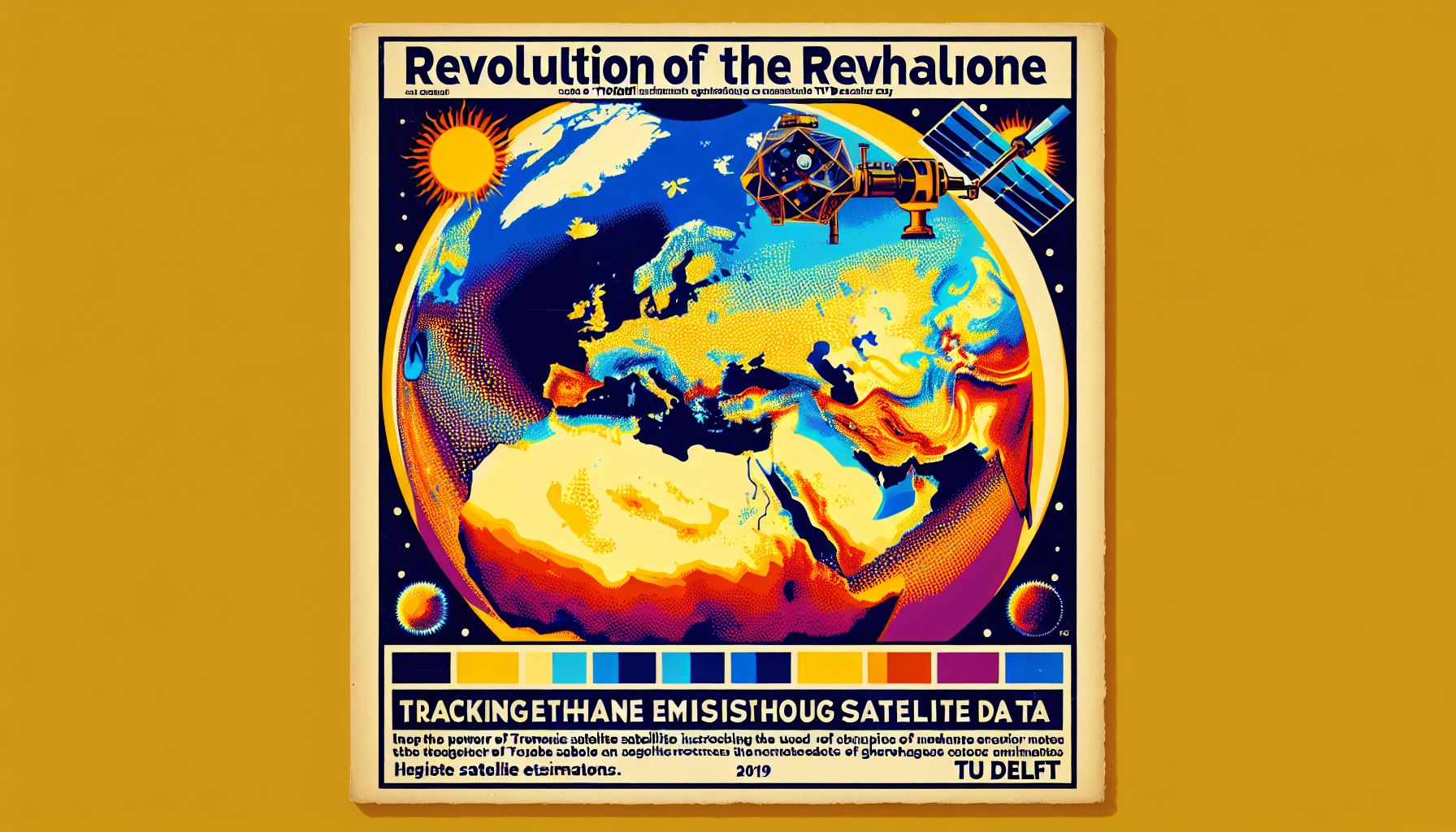Satellite Data Revolutionizes Methane Emission Tracking

Delft, Monday, 9 September 2024.
TU Delft researchers have harnessed the power of the TROPOMI satellite instrument to enhance CH4 emission estimates. This breakthrough could significantly improve our understanding and management of methane, a major contributor to climate change. The study, focusing on the Middle East, demonstrates the current potential of satellite technology in providing accurate, high-resolution data on greenhouse gas emissions.
The Role of TROPOMI in Methane Tracking
The TROPOspheric Monitoring Instrument (TROPOMI) on board the Sentinel-5 Precursor satellite is pivotal in tracking methane emissions. TROPOMI provides daily global coverage, capturing data with a high spatial resolution of up to 7 km x 7 km. This capability allows for precise monitoring of methane hotspots, contributing to more effective mitigation strategies. The instrument’s advanced spectrometers can detect methane concentrations in the atmosphere with unprecedented accuracy.
TU Delft’s Innovative Approach
Researchers at TU Delft, led by Mengyao Liu, have utilized TROPOMI data to conduct a comprehensive study on methane emissions in the Middle East. The team includes experts like Ronald van der A, Michiel van Weele, and Henk Eskes, who have collectively advanced our understanding of atmospheric methane concentrations. Their research, published recently, underscores the instrument’s potential in identifying and quantifying emission sources with high precision.
Significance of the Middle East Study
The Middle East is a critical region for methane emissions due to extensive oil and gas activities. By focusing on this area, the TU Delft team has highlighted the significant variations in methane emissions that can occur over short distances. This detailed analysis facilitates targeted interventions, enabling policymakers to implement more effective regulations and industry practices.
Implications for Global Climate Policy
Methane is a potent greenhouse gas, with a global warming potential approximately 25 times greater than carbon dioxide over a 100-year period. Accurate tracking and management of methane emissions are essential for meeting international climate targets. The advancements made by TU Delft researchers using TROPOMI data provide a robust scientific foundation for global climate policies aimed at reducing methane emissions.
Future Prospects and International Collaboration
The success of TU Delft’s research paves the way for broader international collaboration. It underscores the importance of satellite technology in environmental monitoring and the need for continued investment in such innovations. Future research could expand to other regions, leveraging the high-resolution capabilities of TROPOMI to address global methane emissions comprehensively.

